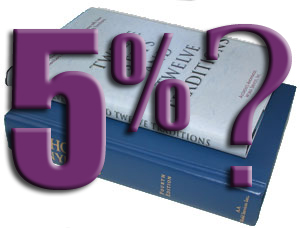Every so often I run across something in the media offering advice for the newly sober. That’s a group that genuinely needs access to good advice, as their own judgment may be, well, less than helpful. It’s one reason that research has found that simply retaining a client in treatment for a minimum of 90 days makes a big difference in the outcome. That initial three months is more important than we might think.
In this instance, however, the question comes from a woman who already has two-plus years of successful sobriety. She seems content with her own recovery and the new relationships that go with it. Problem: there’s this one friendship, left over from the old days, that she still feels guilty about having left behind. So she arranges a meeting with her onetime bestie on a Saturday morning, to lessen the opportunities for trouble.
Too late, because when they do finally meet, her former friend is already drunk. I’ll let her tell it:
I’m now sober, but feel guilty about a friend I’ve left behind
The advice she receives from the columnist is sound enough. Lay down boundaries, and don’t wait until you’re in the midst of an uncomfortable situation to make them known. Tell your friend straight out that you won’t meet with her if she’s been drinking. Better to feel guilty about it than to risk your sobriety. Be kind, but be firm.
Perfectly appropriate, as far as it goes. Still, there’s one extra option I’d have recommended — a possible opportunity for intervention.
Why I say that: First, if the friend knew in advance that the writer wouldn’t be drinking, how do we interpret her showing up in a state of obvious intoxication? After all, most people with active alcohol problems would go out of their way to resist drinking too much at such an occasion — if only to prove to an old friend that they could.
Don’t want people getting ‘the wrong idea’, do we?
Instead, she’s smashed. A big red flag, I would think. When confronted (in the mildest way possible), she’s instantly on the offensive. Doesn’t waste time making excuses. Turns the whole thing back on the person who dared to bring the subject up. Accuses her of abandonment.
Self-preservation is more like it.
This woman’s old friend is in considerable trouble with alcohol. And on some level, I expect she knows it. But can’t muster the courage to deal with it on her own. She needs a boost.
So what about seeking advice from an interventionist? What could it hurt? There may be a way out of this mess.
And who knows, it might actually allow them to restore a friendship that, as things stand, is otherwise not worth salvaging.













Trackbacks/Pingbacks